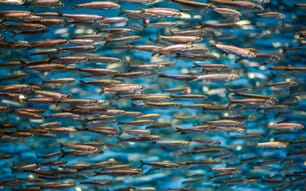According to the U.N. Food and Agriculture Organization, aquaculture now accounts for nearly half of the world's food fish. Salmon, in particular, has seen a tremendous growth over the past two decades, writes Barton Seaver.
What was once a largely Norwegian cottage industry is now a global enterprise run by large multinational corporations with major facilities in North America, South America and Asia. Yet, while salmon farming facilities might be found in picturesque locales around the globe, there's nothing pristine about salmon farming.
Problems at fish farming facilities have real-life impacts felt on kitchen tables around the United States, says Mr Seaver. "Indeed, earlier this year the Safeway supermarket chain announced its intentions to reduce purchases of Chilean farmed salmon after a March New York Times article examining the impacts of an outbreak of the infectious salmon anemia virus and related concerns about sanitary conditions in the industry", he writes.
"When we support a system that produces cheap food at the expense of our ecosystem we're undermining the foundation of both our food system and our culture."
Fish lovers shouldn't have to subsidize environmental pollution with their meal purchases. The techniques employed at most industrial salmon aquaculture facilities are simply not sustainable.
Not all salmon farms are created equal, and there are certainly great examples of companies that are making great progress toward truly sustainable aquaculture. And it is in the best interest of the health of our population to have more farmed fish in our diets. "But our health cannot come at the expense of that of our oceans", writes Mr Barton. "In an era of globally declining natural resources, it's irresponsible for both producers and consumers to place the goal of cheaply farmed fish above responsible stewardship of our oceans."
Consumers Change the Tide of Aquaculture
GLOBE - To keep up with booming demand, retailers have turned to cheaply produced commodity farmed salmon, but now environmentally conscious consumers are turning the trend around.


